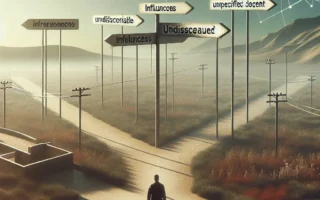The Power of Shared Experiences in Building Strong Social Bonds
Exploring the impact of shared experiences on social bonds reveals the significant role that such interactions play in strengthening relationships and fostering a sense of connection among individuals. The power of shared experiences lies in their ability to create meaningful and lasting connections between people, transcending superficial interactions and building strong social bonds.
When individuals engage in shared experiences, whether it’s through participating in a team-building activity, traveling together, or attending an event, they are able to form a deep sense of camaraderie and mutual understanding. This shared connection is often attributed to the emotions and memories associated with the experience, which can serve as a foundation for building trust and empathy.
Furthermore, shared experiences provide a common ground for individuals to relate to one another, breaking down barriers and fostering a sense of unity. This shared sense of belonging can lead to the development of supportive and enduring social bonds, as individuals feel a sense of validation and acceptance within the group.
In addition, the power of shared experiences in building strong social bonds extends to various settings, including communities, workplaces, and social groups. By creating opportunities for individuals to engage in activities together and share in meaningful experiences, organizations and leaders can cultivate a sense of unity and cooperation among members, ultimately strengthening the social fabric of the community or group.
In conclusion, the power of shared experiences in building strong social bonds is undeniable. By facilitating opportunities for individuals to connect through shared activities and experiences, it is possible to foster a sense of camaraderie, trust, and mutual understanding, ultimately leading to the development of strong and enduring social bonds.
Understanding the Influence of Collective Memories on Relationships
Understanding the influence of collective memories on relationships is a crucial aspect of exploring the impact of shared experiences on social bonds. Collective memories, which are the shared recollections of significant events or experiences within a community or group, play a fundamental role in shaping the bonds between individuals. These memories often serve as a common ground that fosters a sense of belonging and unity among people.
Research has shown that the shared reminiscence of historical events, cultural traditions, or even personal milestones can strengthen social bonds by creating a shared identity and a sense of cohesion within a group. When individuals collectively remember and reflect on past experiences, it fosters empathy, understanding, and solidarity, which are essential components of building and maintaining relationships.
The impact of collective memories on relationships is particularly evident in the context of familial, cultural, and national bonds. For instance, families often recount and cherish shared memories to reinforce their emotional connections and establish a collective family identity. Similarly, cultural and national communities rely on shared historical narratives and traditions to instill a sense of unity and pride among their members.
Furthermore, the influence of collective memories extends to the formation of new relationships. When individuals discover shared experiences or common memories, it often serves as a powerful catalyst for developing rapport and establishing meaningful connections. Whether it’s reminiscing about shared childhood experiences or bonding over common challenges, the sharing of collective memories can deepen the bonds between individuals.
In conclusion, the understanding of how collective memories influence relationships is instrumental in comprehending the broader impact of shared experiences on social bonds. By recognizing the significance of collective memories in fostering a sense of community, shared identity, and connection, we can appreciate their pivotal role in shaping and strengthening relationships.
Exploring the Role of Common Experiences in Fostering Connection
Exploring the role of common experiences in fostering connection is a crucial aspect of understanding the impact of shared experiences on social bonds. When individuals partake in similar events, activities, or challenges, it creates a sense of unity and camaraderie. This shared connection is often based on the emotions, memories, and outcomes of the experience, which can lead to the formation of strong social bonds.
Research has shown that engaging in shared experiences can significantly strengthen relationships and build a sense of community. Whether it’s through participating in team-building exercises, attending cultural events, or overcoming obstacles together, the shared experience becomes a foundational element in the development of connections among individuals. It provides a platform for mutual understanding, empathy, and support, thereby fostering a deeper sense of belonging and togetherness.
Furthermore, common experiences play a vital role in breaking down barriers and fostering inclusivity. When individuals from diverse backgrounds come together and share in similar experiences, it promotes understanding and appreciation for different perspectives. This, in turn, contributes to the cultivation of a more cohesive and harmonious social environment where people feel valued and understood.
In conclusion, the role of common experiences in fostering connection cannot be understated. Whether in personal relationships, community settings, or workplace dynamics, shared experiences have the power to strengthen social bonds, build empathy, and create a sense of unity among individuals. Embracing and valuing these shared moments can lead to a more connected and inclusive society.



